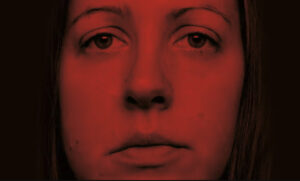The timing of this week’s public inquiry into “the events at the Countess of Chester Hospital”, and the growing suspicion that Lucy Letby’s convictions are unsafe, inadvertently throws up a dramatic forking of two possible worlds. In the first, the nurse committed some of the most depraved crimes in British history, murdering seven premature babies in her care and attempting to kill eight others. If this is indeed the truth, few should shed any tears over her incarceration, and the inquiry will be essential to understanding how systems at the hospital enabled her behaviour.
Yet in a second scenario, the same woman is the innocent victim of catastrophic bad luck and other people’s bad judgement. Babies still died tragically and perhaps also preventably, but nobody deliberately killed them.
In this version of events, Letby is stuck in a Kafkaesque nightmare: first ostracised and nicknamed “Nurse Death” by colleagues because of her coincidental presence at several fatalities on the ward; then wrongly convicted, partly on the basis of a private “confession” she was encouraged by a therapist to write down in order to deal with mounting anxiety; and finally, the subject of hundreds of lurid headlines about being a “monster”, with her family and personal life raked over gleefully by the press.
In this possible world, her sentencing — 15 whole life orders without possibility of parole — is one of the gravest miscarriages of justice in British history. And in this hypothetical case, the public inquiry now happening is not only a waste of money but may well lead to policies that are not fit for purpose, since they are predicated on false assumptions.
One is left wondering how there can possibly be a fruitful public inquiry into events whose very existence has become so highly contested. The New Yorker kicked things off with a sceptical investigation into the case back in May. This questioned the prosecution’s exclusive dependence on circumstantial evidence, its unorthodox interpretation of several sets of statistics, and the admission of what may have been faulty insulin tests as evidence. A further point concerned the testimony of a key expert witness for the prosecution, Dr Dewi Evans. Evans’s theory about how Letby supposedly harmed seven of her victims — namely by injecting air so as to cause embolism — was accepted by the jury, and yet has since been dismissed by several others in the same field as implausible.
It is hard to fully imagine the agony of the parents of the infants involved: first believing the death of their precious child to be the result of natural causes, and grieving accordingly; then being forced to come to terms with the horrifying idea that death was maliciously caused by a caregiver they had liked and trusted; and now flung back into a purgatorial space where they don’t know for sure which of these outcomes is real. Small wonder, then, that the parents of one such deceased baby have rejected the speculation about the safety of Letby’s conviction outright, calling it “lies and misinformation” that “makes us sick to our cores”.
In their situation, I am sure I would feel the same. There are only so many grey areas an exhausted mind, desperate for some kind of closure, can accommodate. Other more disinterested parties don’t have the same excuse, however. Camps are now forming among onlookers, declaring for Letby’s innocence and guilt respectively.
“I’m certain Lucy Letby is innocent,” Professor Richard Gill, emeritus professor of mathematical statistics at the University of Leiden is on record as saying. Meanwhile commentator Dan Hodges seems equally sure in the opposite direction, writing in the Mail that “Letby killed those children. And she did it alone. The campaign to free her is a crazy conspiracy theory too far.”
More worryingly given her high judicial status, the chair of the public inquiry Lady Justice Thirlwall has also implied some scepticism about reports of improper process in her opening statements, at least reading between the lines. Accurately noting a “huge outpouring of comment from a variety of quarters”, she added “as far as I am aware it has come entirely from people who were not at the trial” and “all of this noise has caused enormous additional distress to the parents who have already suffered far too much”. Perhaps she had to say something like this — certainly, it would be odd for her to remain studiedly neutral on the existence of the very events she is charged with examining. Yet for the rest of us, surely this is now the most reasonable thing to do.
For the recent revelations from the New Yorker and other sources mean that we no longer know whether Letby is innocent or guilty, strictly speaking. No doubt many of us believed we knew at one point, but we were wrong. Having knowledge is not the same as possessing subjective feelings of certainty: each of us has experienced a time in the past when we felt absolutely certain yet were mistaken. Having knowledge is not even the same as having true beliefs, though it does require them: even a stopped clock tells the time twice a day and all that. In addition to truth, at least according to one venerable philosophical tradition, knowledge also requires that your true beliefs be justified by good evidence and reasoning. It seems that this standard has not yet been collectively reached, either for assertions about Letby’s guilt or her innocence.
In fact, according to a more recent epistemological theory known as contextualism, standards for what counts as knowledge alter with the context. Roughly: the higher the stakes, the more hesitant we are — or should be — to ascribe “knowledge” to those who express a firm view on something. In a banal case, you may happily say you “know” where your car keys are, but if your pregnant wife is begging you to be ready to drive her to the hospital at a moment’s notice, you may suddenly feel a reasonable need to do some extra checking. In the Letby case, given the dramatised nature of each of the possible scenarios — appalling crimes or terrible injustice, and no room in between — the stakes could not be much higher; a fact which suggests that confident claims about knowledge at this stage are likely to be foolish and hubristic, independently of whatever turns out to be true.
Judicial systems in the UK do not require proof of innocence for acquittal, but only the absence of the establishment of guilt; even fully exonerated defendants are not positively demonstrated to be innocent, but only formally presumed so. More generally, a mature mindset requires the ability to sit comfortably with the conditional tense, and to tolerate several competing hypotheticals at once. Yet collectively, we don’t seem very good at this; and are perhaps getting worse at it all the time, in a culture where lots of social capital can be earned by boldly claiming that you know something, and little is apparently lost when you get things wrong.
But there is also something deeper here. Indeed, the apparent challenge of arguing for just process in a non-partisan, noncommittal way seems to me to have interesting affinities with the struggle many apparently display in upholding the value of free speech in the abstract. I have observed before that people tend to support only the free speech of those they already agree with, secretly or otherwise, seeing no point in positively helping to distribute messages they believe to be false or harmful. In the same vein, people are most likely to argue that Letby’s conviction is unsafe where they also positively believe she is innocent.
In contrast, those who are certain she is guilty are likely to be disincentivised from arguing for any official re-examination of the facts which might bring about her freedom. In the realm of speech, false statements can travel fast and do untold harm; and in the realm of justice, there are mistaken acquittals as well as convictions. If, like Hodges, you are apparently certain that Letby did in fact commit the crimes she was accused of, then as someone also aware of the epistemic fallibility of people and systems generally, you might conclude it would be unacceptably risky to agitate for any new intervention which could lead to her release.
But what this line of thought misses, of course, is that it is not just other people who are epistemically fallible — we each are too. Difficult as it is to stand at a sceptical second-order remove from one’s own thoughts and feelings, every reasonable person should admit that some of his own present beliefs are bound to be wrong — even if he cannot say which ones, exactly. This goes for judges as well as internet sleuths, police officers as well as commentators and columnists. It is the reason why we need free speech even for those we disagree with, and fair process even for those we condemn.
Hence, given the stakes are so high, and the evidence of faulty process is now so suggestive, both those who insist Letby is guilty and those who insist she is innocent should demand her lawyers be given another chance to establish the facts. Last week, she instructed a new legal team with a view to mounting an appeal. It is to be hoped that she gets one. The public inquiry can be no substitute for this and nor is it intended to be. Unless we can properly ascertain Letby’s guilt or otherwise, the inquiry’s findings will always be overshadowed by the terrible possible world lurking next door.
Disclaimer
Some of the posts we share are controversial and we do not necessarily agree with them in the whole extend. Sometimes we agree with the content or part of it but we do not agree with the narration or language. Nevertheless we find them somehow interesting, valuable and/or informative or we share them, because we strongly believe in freedom of speech, free press and journalism. We strongly encourage you to have a critical approach to all the content, do your own research and analysis to build your own opinion.
We would be glad to have your feedback.
Source: UnHerd Read the original article here: https://unherd.com/



